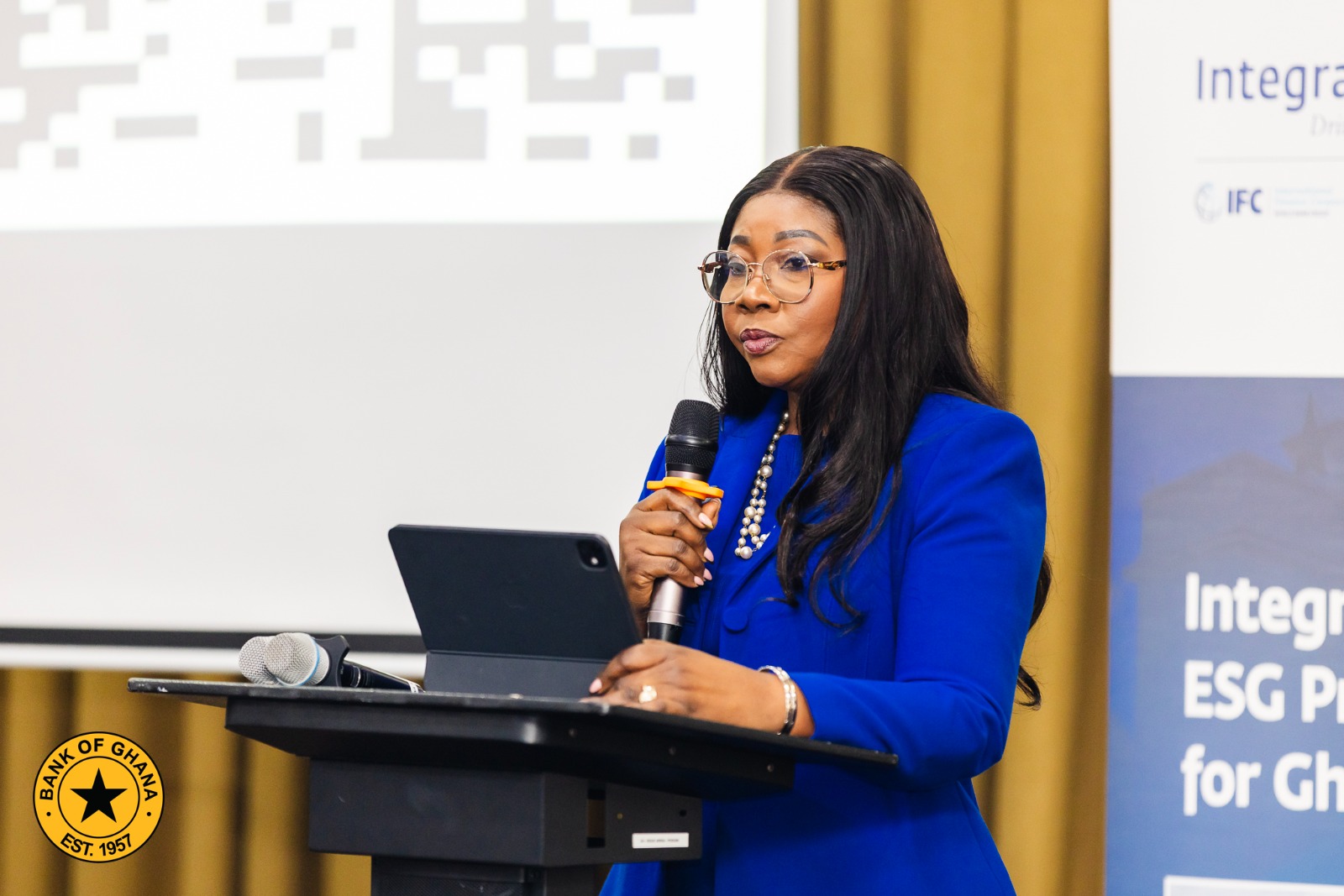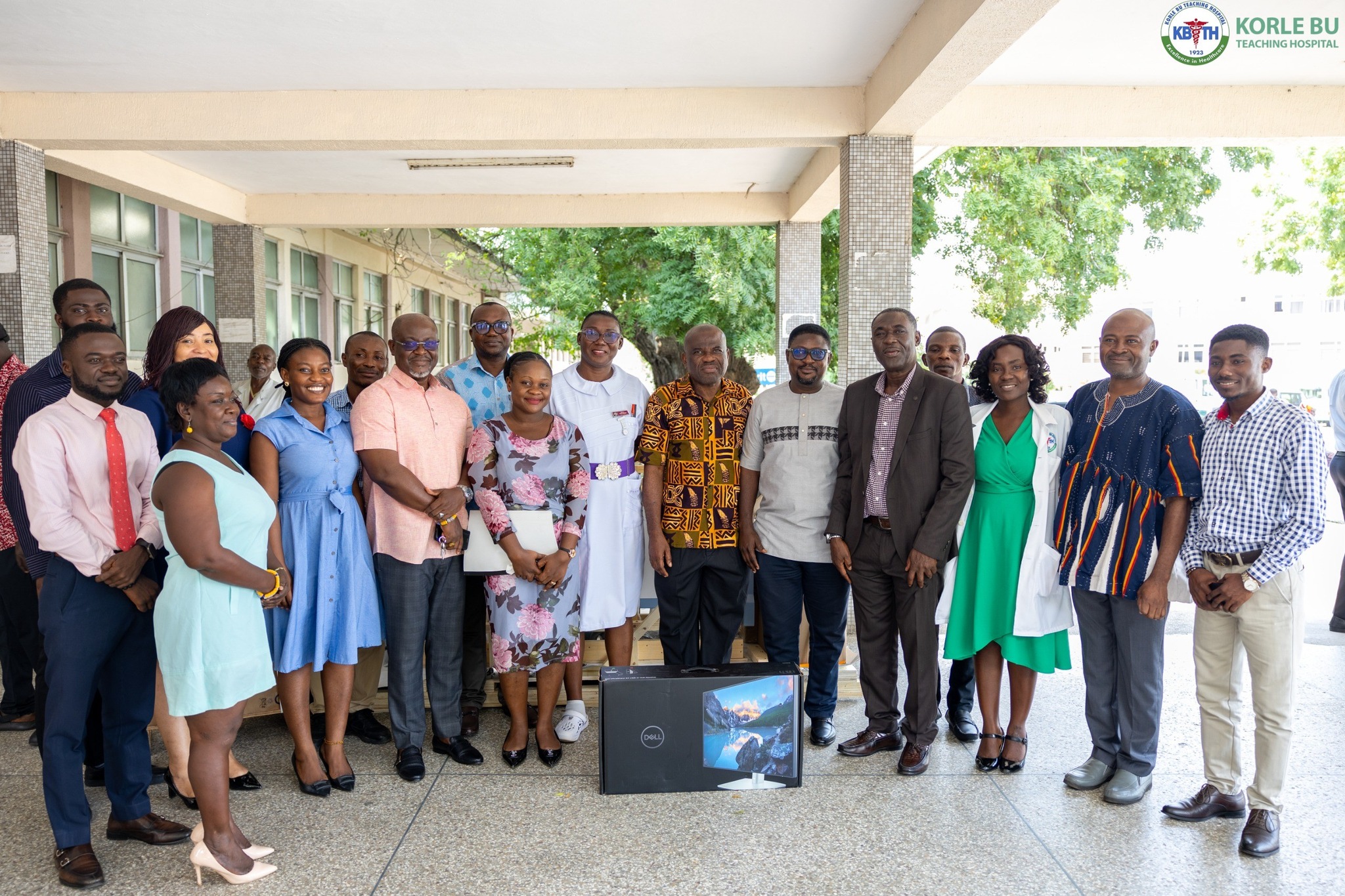The Second Deputy Governor at the Central Bank, Matilda Asante-Asiedu, has reaffirmed the Bank’s leadership in promoting a sustainable financial ecosystem as Ghana hosted the Ghana Sustainable Banking Principles – Construction Sector Deep Dive in Accra on Tuesday, 29 July 2025.
 Given a brief overview of the Bank of Ghana’s sustainability journey, she said, the journey began in 2015 with the establishment of the Sustainable Banking Committee and this was the first step towards identifying ESG vulnerabilities within the banking sector. In 2019, following extensive stakeholder consultation, the Ghana Sustainable Banking Principles were launched. These principles, endorsed by bank CEOs, signaled a major shift in institutional mindsets and set the tone for integrating ESG into daily banking operations.
Given a brief overview of the Bank of Ghana’s sustainability journey, she said, the journey began in 2015 with the establishment of the Sustainable Banking Committee and this was the first step towards identifying ESG vulnerabilities within the banking sector. In 2019, following extensive stakeholder consultation, the Ghana Sustainable Banking Principles were launched. These principles, endorsed by bank CEOs, signaled a major shift in institutional mindsets and set the tone for integrating ESG into daily banking operations.
Mrs Asiedu said, to support implementation, the Bank has rolled out a standardized ESG reporting template in 2021, allowing banks to report their progress via the Online Regulatory Analytics and Surveillance System—ORASS. Since then, “we have worked together to embed these principles in bank governance, strategy, risk management, and operations. Between 2021 to 2023, the Bank of Ghana facilitated the training of all 23 commercial banks on the 7 sustainable banking principles.
According to her, they have since been receiving biannual returns from the banks to assess the banks’ compliance, and the 2nd Deputy Governor was pleased to announce that the average compliance rate of the GSBPs has been on an upward trajectory from 42.28 in March 2021 to 73.06 as at March 2025.
Touching on related matters, Madam Matilda mentioned that in 2021, the Bank of Ghana joined the Network for Greening the Financial System (NGFS)—a global alliance of central banks advancing climate-related financial supervision.
Bank of Ghana’s membership reflects our growing commitment and gives us access to global knowledge and tools. That same year, “we began aligning with international standards, including the Basel Committee’s guidance on climate-related financial risks. This work, she stressed, culminated in the issuance of our Climate-Related Financial Risk Directive in 2024 for all Regulated Financial Institutions (RFIs) for effective management and supervision of this evolving risk.
“This directive seeks to enhance the resilience of Regulated Financial Institutions (RFIs) by integrating climate risk considerations into governance, risk management, and disclosure practices. Banks are required to update their governance structures, risk management systems, and internal policies to comply with the directive by 31st December 2025, with full implementation starting on 1st January 2026”, she added.
The Bank of Ghana has developed other partnerships with international and local bodies such as the Sustainable Banking and Finance Network (SBFN), the Alliance for Financial Inclusion (AFI), and the Ghana Meteorological Agency (GMET). These collaborations enhance institutional learning and position the Bank of Ghana to shape global discourse on sustainable finance.
Additionally, the Bank of Ghana is working closely with other regulators through the Sustainable Finance Roadmap, a coordinated plan to guide Ghana’s transition to sustainable finance. The recently launched Green Finance Taxonomy, jointly developed with the Ministry of Finance, provides a shared language for identifying sustainable investments.






































